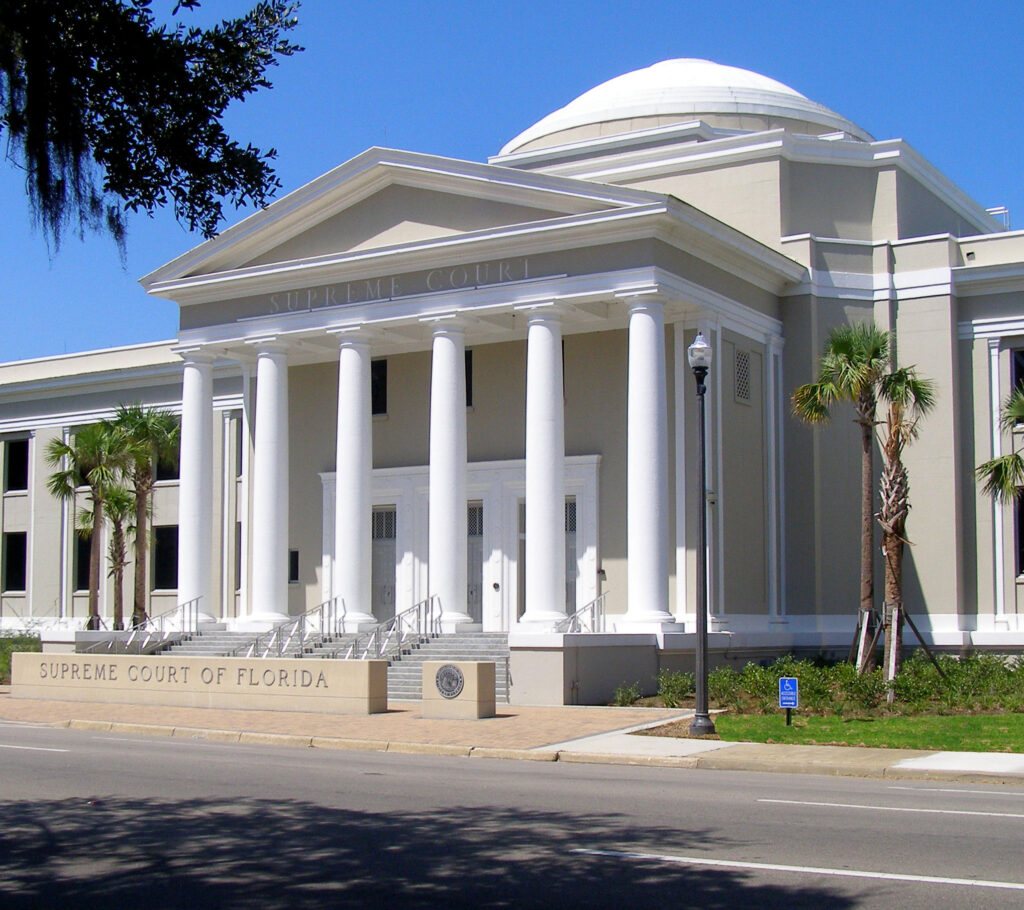OPINION: Marsy’s Law should not provide anonymity to corrupt cops

The City of Tallahassee filed a brief to the Florida Supreme Court on June 14 asking for a decision on whether on-duty law enforcement could be classified as victims under the 2018 Article I Section 16 amendment Marsy’s Law, which outlines crime victims’ rights.
The law, according to the Marsy’s Law website, is named after Marsalee (Marsy) Ann Nicholas, a college student who was stalked and murdered by her ex-boyfriend in 1983. Her family wasn’t notified of his release from jail after the murder, which led to her mother coming face to face with him just weeks later.
Though the law was intended to provide rights to people like Marsy’s family, it’s been twisted by court rulings to protect police officers who have injured and even killed civilians in use-of-force cases by claiming they are the victim and the suspect was the aggressor. Two Tallahassee officers shot and killed two suspects brandishing weapons, according to the officers, and were granted anonymity by their departments, leading to the case before the court at this time.
With police using this law as a means to dodge accountability, Florida justices need to interpret the amendment to exclude on-duty law enforcement from the definition of victim in the constitution. The Supreme Court needs to prohibit sheriff’s offices from withholding officers’ identities.
A January 2019 investigation by news organization ProPublica revealed how often Florida abuses this law. The sheriff’s offices in Collier and Charlotte counties have withheld deputies’ identities in 1 of 6 incidents in which an officer used force on a civilian and injured them. The Hernando County Sheriff’s Office withheld identities for 1 out of every 3 police-inflicted incidents.
It’s easy for officers to claim victim status, doing so with minor injuries such as scraped knees and soreness. Half of the officers who have successfully claimed victimhood didn’t even sustain any injuries, according to ProPublica’s investigation.
Even minor movements such as walking aggressively or reaching for a pocket could be labeled as “threatening an officer,” qualifying as battery and therefore granting anonymity under the law despite the officer remaining unscathed.
Marsy’s Law never specified if the victim’s protection is automatically granted or if it’s something to be requested, which has sparked debate and inconsistency among law enforcement leaders across Florida.
The sheriffs in both Pinellas and Hillsborough counties haven’t perpetuated this unjust practice other Florida offices are following. They’ve rightfully decided to name deputies in cases, Hillsborough Sheriff Chad Chronister said in a statement provided to The Oracle.
“While the opinion of the [court] is not yet final, we will continue to remain as transparent as possible with the community until a concrete legal decision is reached,” said Chronister.
More states have added Marsy’s Law to their ballots, one being Kentucky, where the murder of Breonna Taylor took place in March 2020. Taylor was killed after Louisville police officers opened fire in her apartment as the result of a botched raid.
Had Marsy’s Law been in effect when this occurred, there’s a large possibility the public wouldn’t be privy to the identities of the three officers who murdered Taylor.
Barbara Petersen, the former head of Florida’s First Amendment Foundation, spoke out in May court filings for this case. She argued the public has every right to know which officers have used force on civilians.
“Had the Minneapolis Police Department withheld the identity of Derek Chauvin, the officer charged with killing [George] Floyd, the public may not have learned of his extensive history of using excessive force,” said Petersen.
The Florida Supreme Court should follow Chronister’s action and advice so these misapplications can be avoided in the future. While the court decides, fellow law enforcement leaders should follow suit in providing civilians safety in knowledge.
Police shouldn’t be immune to accountability, and as Marsy’s Law stands now, that’s what it provides. Floridians have a right to know what officers have inflicted injury upon their fellow citizens. To have an amendment misused so heavily, clear reform needs to be taken.







